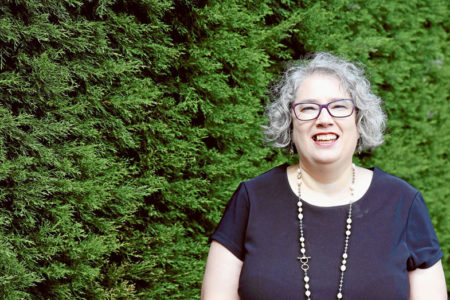If you have been following the Revised Common Lectionary you most likely have spent some time recently reading the letter to the Ephesians.
If you haven’t paid much attention to the letter I encourage you to read it because it is particularly helpful for not just thinking about the life of the Church but the trend in our nation towards the politics of division.
The letter has more to say about the Church than almost anything else in the New Testament. One of the interesting things is the amount of time it gives to the Church and how those who belong to it should live.
About half of the letter is devoted to how Christians are to behave towards each other. At its heart is a conviction that in Christ we are loved by God and that, as beloved of God, we need to live as loving people. As people who are forgiven we need to forgive. As people made wise we need to live wisely.
For the writer to the Ephesians, the unity of the Church is a key way the Church lives ethically as the chosen people of God. Our unity comes as a gift of grace from God, in Christ. Through Christ’s death, resurrection and ascension those barriers which previously separated us from God and each other are overcome and we are made one people.
We are no longer Jew or Gentile, slave or free, because we are made one in Christ. We have “one body, one Spirit, one hope of our calling, one Lord, one faith, one baptism and one God (Ephesians 4:4-5)”. The body of Christ is not static. Rather it is an organic body which we need to grow into the unity which Christ gives us.
The gifts of God are given to us not for our own sake, but for the sake of the body of Christ, the Church, for building up the body that we might be made one in love.
We grow into the gift of unity when we align ourselves with God’s ways. We grow into the gift of unity when use our gifts to build each other. We grow into the gift of unity when we seek restoration and renewal in the body. We grow into the gift of unity when we seek the wellbeing of the whole body.
The vision of unity in the letter is a delicate dance between my growth as an individual disciple and the growth of the whole community. When I grow in my understanding of God’s ways, when my individual discipleship is strengthened, the community of the Church is strengthened.
In this growing into unity I become who I am truly meant to be only in relation to others who I share the life of faith with. When I am transformed in wisdom and love through the gift of the Spirit I am part of the transformation of all things.
We are all connected, we all belong because we “bear one another in love (4:2)”. This is not a warm gushy feeling, but a calling to act with love in the world.
This is what it means to “live a life worthy of our calling (4:1)” – that we love and endure with each other, especially when it is hard to do so, when we don’t feel loving, or when the pain of disagreement and difference seems insurmountable.
As people called to belong to each other and grow into our calling as the body of Christ, love means we act with humility and goodwill towards each other – especially in hard times.
We live in a country and world where people of ill-will seek to use difference to divide and demonise our capacity to live in unity and embrace diversity. However, difference and disagreement is a witness to the power of God’s loving presence to sustain communal life.
As a Uniting Church we are wrestling with learning to live together, to be united even we don’t agree on key theological and ethical issues.
The recent Assembly has highlighted different understandings of human sexuality. To live as a community of love doesn’t mean we ignore those who have different beliefs.
Rather, we commit again to the act of loving each other and seek to be humble, to listen generously and grow together as the body of Christ – because that is our calling and gift.
To do anything less would be fail to live a life worthy of our calling.



